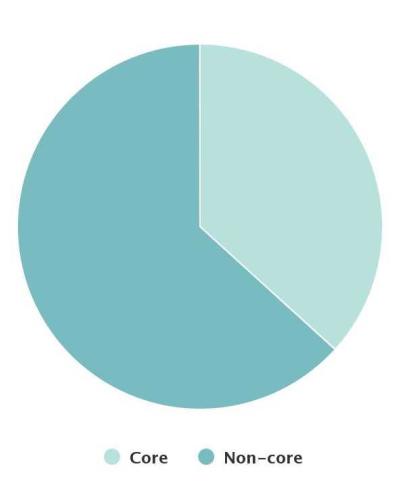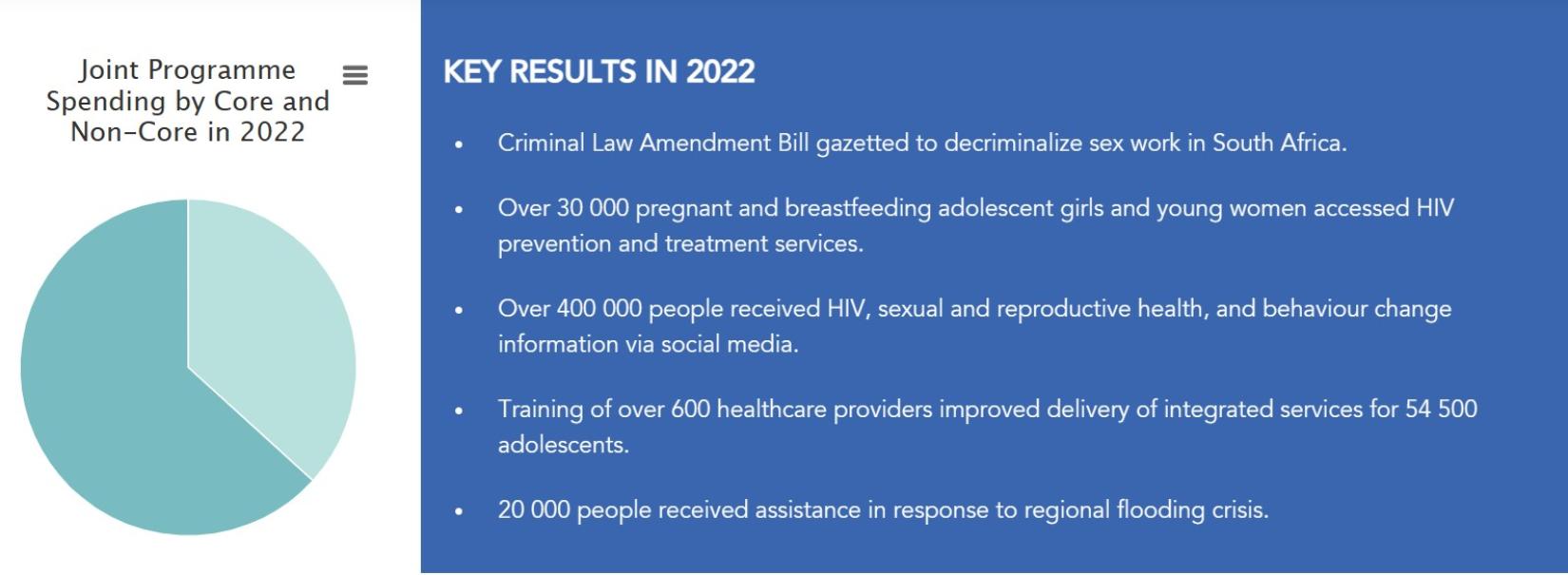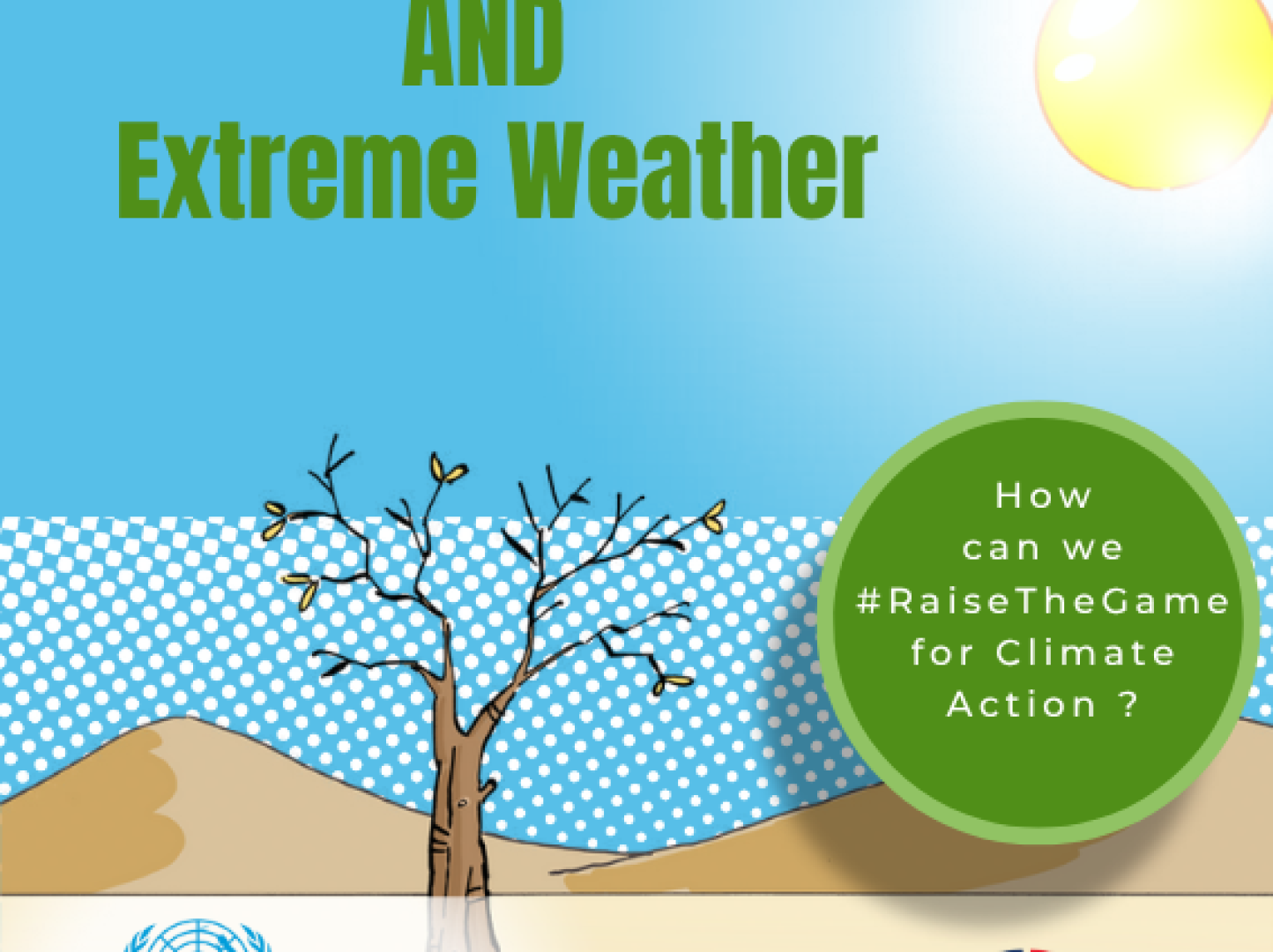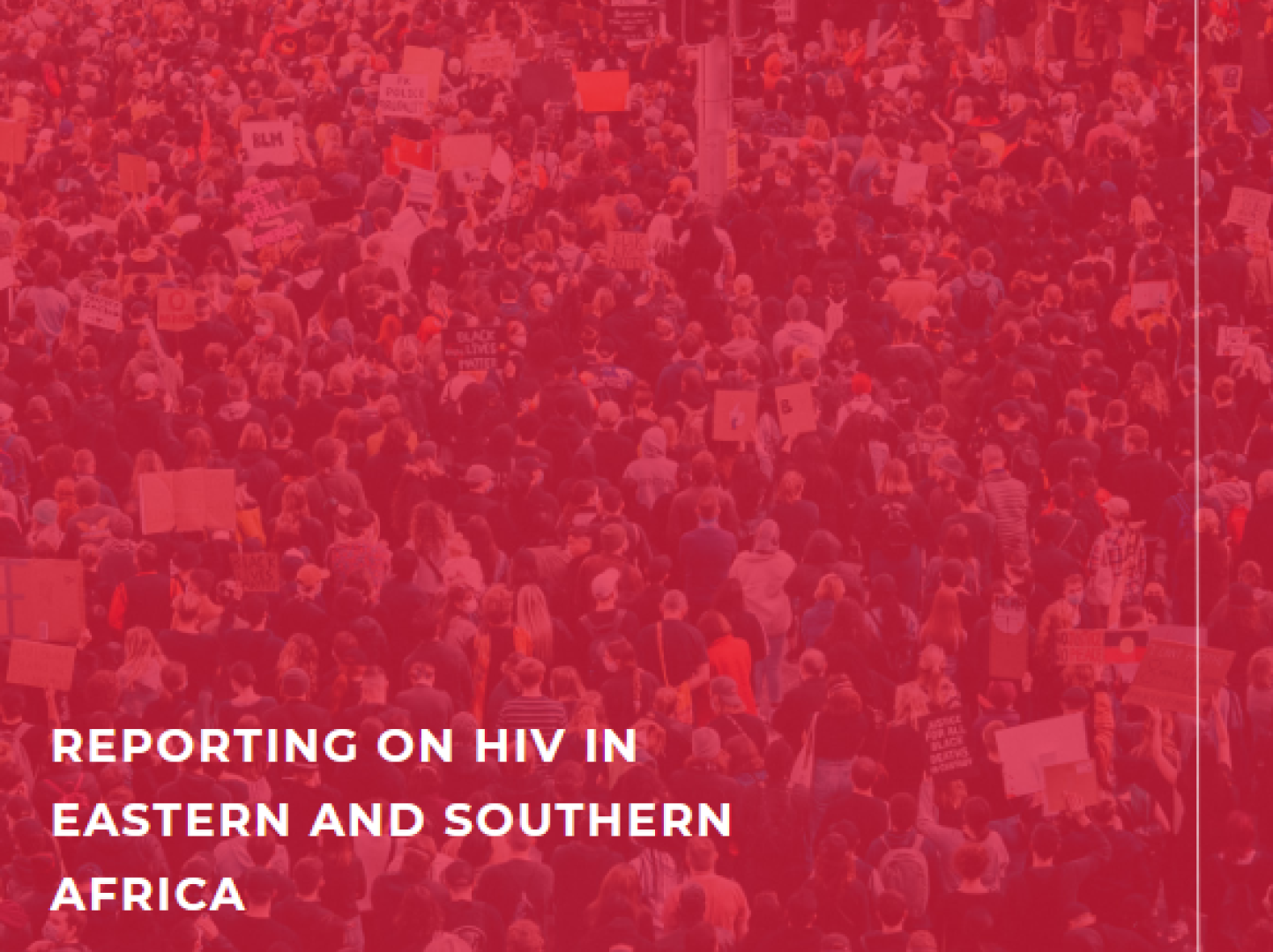The joint programme's support to the National HIV Response in 2022


In South Africa, support from the Joint Team led to the development of a person-centred 5th generation National Strategic Plan on HIV, TB, STIs (2023-2028). Alignment to the Global Alliance initiative strengthened integration of prevention of mother-to-child transmission of HIV and paediatric HIV services, leading to improved data quality, patient monitoring and care, (UNICEF, WHO).
Implementation of new guidelines resulted in increased monthly viral load testing among pregnant and breastfeeding women, from 19.6% to 27.6% between October 2021 to September 2022 (UNICEF). In three provinces, 31 600 pregnant and breastfeeding women accessed comprehensive HIV prevention and treatment, with increased pre-exposure prophylaxis initiation—from 2 to 21 600 in one quarter (UNICEF). Additionally, over 380 000 adolescents and 35 600 mobile populations received HIV, sexual and reproductive health, behaviour change information and service linkage services (UNFPA, IOM). In Eastern Cape and KwaZulu-Natal provinces, a total of 100 000 young people further benefitted from integrated HIV, sexual and reproductive health, and gender-based violence services (UNFPA). Young female farmers in KwaZulu-Natal province moved from subsistence farming to a for-profit enterprise through a partnership with the Young Women for Life Movement (UN Women).
In December 2022, Cabinet gazetted the Criminal Law (Sexual Offences and Related Matters) Amendment Bill for public comment, to decriminalize sex work in South Africa, thanks to sustained support from the Joint Team and its partners. Gender equality was mainstreamed in the HIV response and survivors of gender-based violence accessed justice and protection services through judges and chief magistrates trained in HIV, human rights, and gender-based violence (UNFPA, UNAIDS Secretariat).
Community-led monitoring was strengthened services for people living with HIV and key populations in more than 400 health facilities, resulting in reduced clinic waiting times, fewer clients sent home without medication, more people receiving antiretroviral medicine refills for longer periods and improved access to psychosocial support and gender-based violence services (UNAIDS Secretariat).
The Network of People Who Use Drugs (SANPUD) received continuous technical support to advance the promotion and scale up of harm reduction services aligned to the national Drug Master Plan. In support of this, targeted trainings educated community members about harm reduction programmes while a webinar produced by the Joint Team and other partners promoted harm reduction and the scale up opioid substitution therapy. Additionally, delegations from the Ministry of Justice and Correctional Services benefited from a Learning Exchange Visit to Kenya to advance implementation of harm reduction programmes in South Africa (UNODC).
To overcome the flooding crisis in Eastern Cape and KwaZulu-Natal provinces, 20 000 people received information on sexual and reproductive health, gender-based violence, HIV and other sexually transmitted infections (STIs) as well as sanitary kits (UNHCR, UNICEF, OCHA); about 3 650 children and parents had access to child protection, prevention, mental health and psychosocial services (UNICEF); 5000 people in 28 shelters received food and non-food items (UNDP) and 450 people were referred to HIV, STI, tuberculosis and sexual and reproductive health services (UNFPA, OCHA).
Joint Team: UNHCR, UNICEF, UNDP, UNFPA, UNODC, UN Women, ILO, UNESCO, WHO, UNAIDS Secretariat, IOM, OCHA, OHCHR




